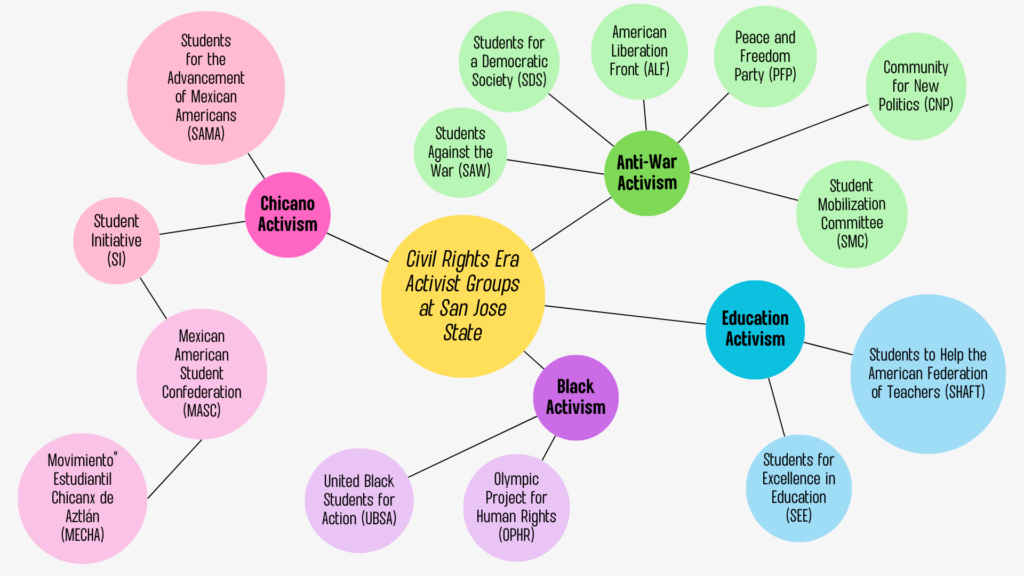
In the mid-1960s, many San Jose State students became involved in activism due to major educational reforms in California. Groups like SEE and SHAFT at San Jose State, which is a former teaching school, helped propel students’ voices to the forefront of issues like tuition, increasingly full classes, and the lack of diversity in classes, students, and faculty.
By the late 1960s, the number of San Jose State activist groups had skyrocketed. Nationally, the Vietnam War and desegregation loomed over college campuses. At San Jose State, anti-war groups like Students for a Democratic Society featured prominently in local and even national headlines for protests which saw them getting into scuffles with ROTC students, police, and members of the Hells Angels Motorcycle Club. SDS collected and returned draft cards from conscientious objectors to the draft board and protested against the presence of Marine recruiters, ROTC members, and Dow Chemical recruiters, of which the latter company was responsible for making napalm for the Vietnam War.
In 1967, Dr. Harry Edwards, a San Jose State adjunct professor and former student, changed the course of history when he met with graduate student Ken Noel and they decided to form United Black Students for Action. UBSA called for major changes at the university, such as desegregation of the Greek system, fair housing, and more support for Black student athletes. They also helped form Olympic Project for Human Rights, which sought to show support for Black athletes all over the world, and whose members participated in the iconic awards ceremony protest at the 1968 Mexico City Olympics.
Additionally, Chicano students were becoming more socially and politically involved on and around campus and wanted their university to reflect the diversity of the community. Chicano activist groups advocated for more Chicano students and faculty on campus as well as a Chicana and Chicano Studies Program. They were able to accomplish all these goals, and San Jose State’s status as a Hispanic-Serving University is a testament to their success.